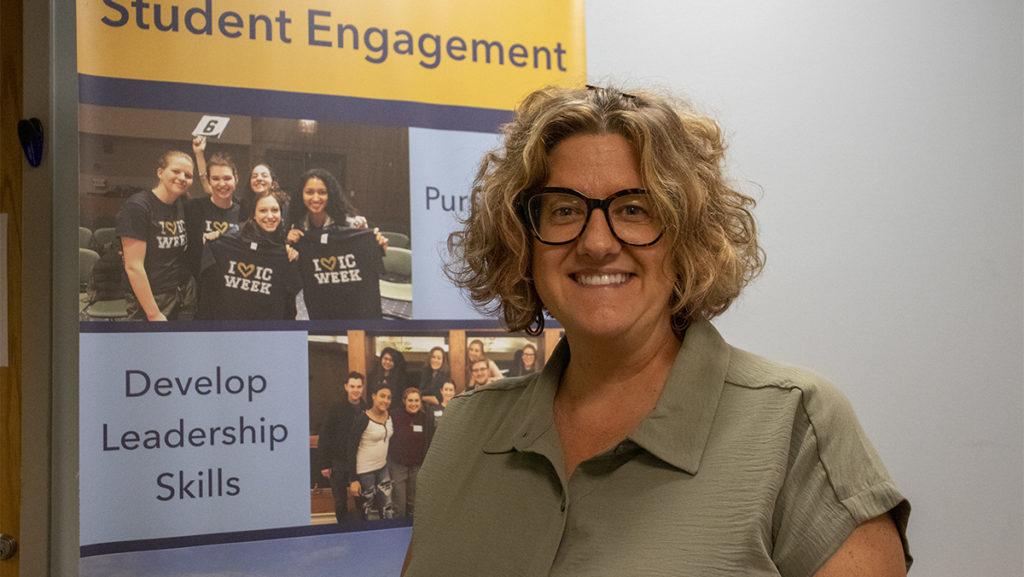One of the most meaningful things that happens during college is making strong connections with friends. Students who put energy into meeting new people and creating supportive, personal relationships early in their college experience will benefit in a variety of ways.
Students who make friends and form positive bonds in college are more likely to be academically successful and to ultimately graduate. It makes sense that you would feel encouraged when you have people around who check in on you when you have a project due, or empathize when you have a bad day, or want to celebrate when you accomplish a goal. That kind of support is key to helping you navigate the challenges of higher education.
When you get to college, you are growing as a person, so you might start to widen your social circles to include people who live in the same residential area as you, who are in classes or labs you are taking, or in groups that you participate in, such as teams, clubs or jobs on campus. This may feel awkward at first — it takes a bit of effort along with some willingness to be vulnerable, like starting a conversation with someone you do not know yet. Asking a classmate, “what did you think about today’s discussion topic?” might be enough to break the ice. Yes, there really is a reason for those icebreakers that you might think are cheesy — they really do allow you to get to know someone a little better.
Just ask the almost 400 students who participated in the Jumpstart program Aug. 14 and 15. First, they made a choice to move to campus early and join a group of people they did not know but quickly found they would have at least one shared interest. The Jumpstart coordinators asked them to share lots of stories about themselves with this group of strangers. The students who embraced the chance to talk about an amazing meal they’ve had, or why they chose their major, or even what kind of liquid they would want to have come out of their belly button on command (yes, that one is kind of gross — but I bet you’re thinking about it now … and maybe even want to share your answer with someone?!) were the ones who made new friends after spending less than 24 hours together.
Of course, those introductions are just the beginning — you need to have shared experiences to turn an acquaintance into a friend. Putting the effort in to form those friendships can help you build potential study groups, give you someone to process with when you make a mistake or help you find your sense of belonging on campus. And you can provide that same kind of support back to people in your circle of friends. Putting in that long-term effort is where true friendships thrive. Some of your college friendships will be close and some will be casual and some will fade or break away as you continue to grow and as you recognize who is truly supporting your wellness and life goals.
Every year, I hear from scores of students that they are worried about making new friends, so there are lots of people on campus wanting to make an authentic connection with others at Ithaca College. Students who search for a group related to their interests, and then invest some time in that organization/team/job, exponentially increase their chances of making friends. That investment part is key – finding the right balance of dedicating a few hours a week to opportunities to learn and grow outside of the classroom and staying on top of academic work, too.
That early and committed investment pays off in ways you may not imagine. The friendships you develop during your time at Ithaca College will help you be more successful, enjoy your experience now and create memories that will last a lifetime. Next time you are asked to do an icebreaker, I hope you stop yourself from rolling your eyes for a moment, then share and listen and open yourself up to connect with a potential new friend!














